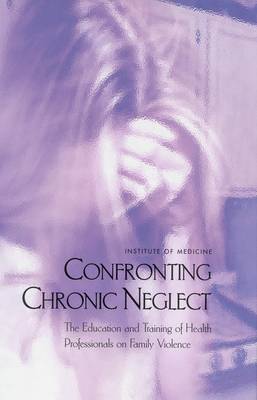As many as 20 to 25 percent of American adults—or one in every four people—have been victimized by, witnesses of, or perpetrators of family violence in their lifetimes. Family violence affects more people than cancer, yet it's an issue that receives far less attention. Surprisingly, many assume that health professionals are deliberately turning a blind eye to this traumatic social problem.
The fact is, very little is being done to educate health professionals about family violence. Health professionals are often the first to encounter victims of abuse and neglect, and therefore they play a critical role in ensuring that victims—as well as perpetrators—get the help they need. Yet, despite their critical role, studies continue to describe a lack of education for health professionals about how to identify and treat family violence. And those that have been trained often say that, despite their education, they feel ill-equipped or lack support from by their employers to deal with a family violence victim, sometimes resulting in a failure to screen for abuse during a clinical encounter.
Equally problematic, the few curricula in existence often lack systematic and rigorous evaluation. This makes it difficult to say whether or not the existing curricula even works.
Confronting Chronic Neglect offers recommendations, such as creating education and research centers, that would help raise awareness of the problem on all levels. In addition, it recommends ways to involve health care professionals in taking some responsibility for responding to this difficult and devastating issue.
Perhaps even more importantly, Confronting Chronic Neglect encourages society as a whole to share responsibility. Health professionals alone cannot solve this complex problem. Responding to victims of family violence and ultimately preventing its occurrence is a societal responsibility
Table of Contents
- Front Matter
- Executive Summary
- 1 Introduction
- 2 Defining the Problem
- 3 Current Educational Activities in the Health Professions
- 4 Forces Influencing Health Professionals' Education
- 5 Evaluation of Training Efforts
- 6 Training Beyond the State of the Art
- 7 Priorities for Health Professional Training on Family Violence
- References
- Appendix A Accreditation Requirements
- Appendix B Policy Statements of Health Professional Organizations
- Appendix C Mandatory Reporting Laws for Family Violence
- Appendix D Mandatory Education Laws for Family Violence
- Appendix E Existing Curricula on Family Violence
- Appendix F Summary of Evaluation Studies on Training of Health Care Professionals on Intimate Partner Violence
- Appendix G Summary of Evaluation Studies on Training of Health Care Professionals on Child Abuse and Neglect
- Appendix H Core Competencies for Family Violence
- Appendix I Biographical Sketches of Committee Members and Staff
- Index
- ISBN10 0309074312
- ISBN13 9780309074315
- Publish Date 4 May 2002
- Publish Status Active
- Publish Country US
- Imprint National Academies Press
- Format Hardcover
- Pages 368
- Language English
